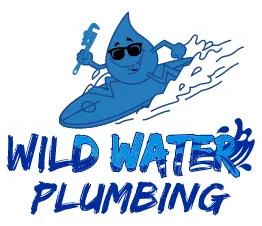WILD WATER PLUMBINGHot Water Heater Not Getting Hot
U.S. Navy Veteran Owned & Operated throughout greater Jacksonville, NC.
WILD WATER PLUMBINGHot Water Heater Not Getting Hot
U.S. Navy Veteran Owned & Operated throughout greater Jacksonville, NC.
A hot water tank that isn’t heating properly can be a major inconvenience, affecting daily activities like showering, washing dishes, and laundry.
Here’s a step-by-step guide to help you troubleshoot and identify the source of the problem.
TROUBLESHOOTING GUIDE
Step 1:
Identify the Symptoms
- No Hot Water: Water from the hot water tap is cold.
- Inconsistent Temperature: Water is warm but not hot enough, or temperature fluctuates.
- Strange Noises: Unusual sounds coming from the water heater.
- Leaking Water: Water pooling around the base of the water heater.
Step 2:
Check the Power Supply (Electric Water Heater)
- Circuit Breaker: Ensure the circuit breaker for the water heater is not tripped. Reset if necessary.
- Power Switch: Verify that the water heater’s power switch is turned on.
Step 3:
Inspect the Thermostat
- Temperature Setting: Ensure the thermostat is set to the desired temperature (usually between 120-140°F).
- Thermostat Function: Test the thermostat to see if it’s functioning correctly. Replace if faulty.
Step 4:
Examine the Heating Elements (Electric Water Heater)
- Inspection: Electric water heaters typically have two heating elements. Use a multimeter to test for continuity.
- Replacement: If one or both elements are defective, they must be replaced.
Step 5:
Check the Pilot Light (Gas Water Heater)
- Pilot Light Status: Ensure the pilot light is lit. If it’s out, follow the manufacturer’s instructions to relight it.
- Thermocouple: If the pilot light won’t stay lit, the thermocouple may need to be replaced.
Step 6:
Inspect the Gas Supply (Gas Water Heater)
- Gas Valve: Ensure the gas valve supplying the water heater is open.
- Gas Line: Check for any leaks or issues in the gas line. If you smell gas, turn off the gas supply and call a professional immediately.
Step 7:
Flush the Tank
- Sediment Buildup: Sediment can accumulate in the tank over time, affecting heating efficiency. Drain and flush the tank to remove sediment.
- Procedure: Turn off the water supply, attach a hose to the drain valve, and let the tank empty. Refill and check if the issue is resolved.
Step 8:
Inspect the Dip Tube
- Function: The dip tube directs cold water to the bottom of the tank for heating. If broken, it can cause cold water to mix with hot water.
- Inspection: Remove and inspect the dip tube for cracks or breaks. Replace if necessary.
Step 9:
Check for Leaks
- Visual Inspection: Look for any signs of water leakage around the tank and connections.
- Pressure Relief Valve: Check the pressure relief valve for leaks. Replace if it’s faulty.
Final Step:
When to Call Wild Water Plumbing
If you cannot identify or resolve the problem using the steps above, it’s time to call a professional.
Wild Water Plumbing can diagnose and repair hot water tank issues efficiently.
Contact Wild Water Plumbing
For expert assistance with hot water tank problems, contact Wild Water Plumbing.
Our skilled technicians will ensure your hot water supply is restored quickly and effectively.
Is your shower turning cold too fast? Spot the warning signs of a failing water heater before it leaves you with no hot water! From leaks and strange noises to rusty water and low pressure, we’ll cover why water heaters fail, the dangers of DIY fixes, and the best options for a replacement. Thinking of going tankless? We’ll break down the pros, costs, and energy savings. If you’re in Greater Jacksonville, NC, call Wild Water Plumbing for expert water heater service today!
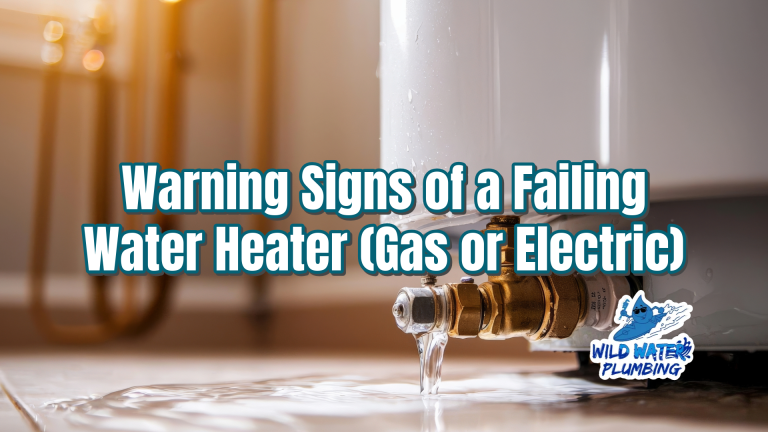
Replacement of gas or electric water heater can be a tempting DIY project for homeowners who want to save some cash and experience something new. But the task comes with a whole set of difficulties to be considered and prepared. In addition to resolving intricate safety issues like gas leaks and electrical issues, complex connections and the ability to maintain local building codes, it requires expertise and attention to detail. Sizing and getting it right in the existing area, as well as fitting the new appliance correctly, are the most important elements to ensure sufficient hot water, and a seamless connection to your plumbing and electrical systems. Even obtaining all the permits required and planning for inspections can make the project a little more complicated.
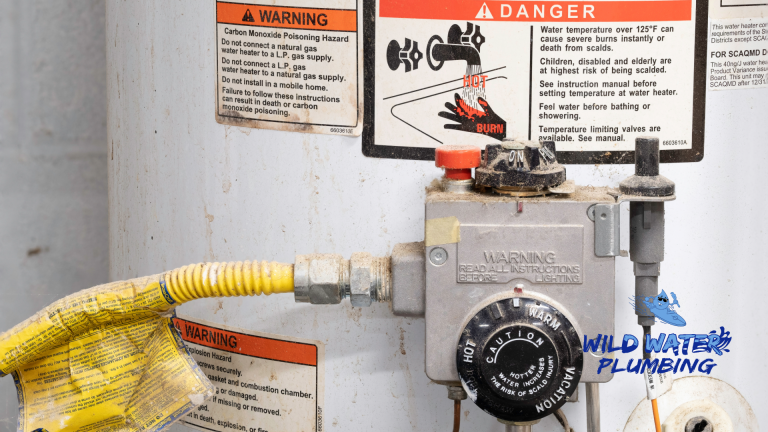
Hiring an unlicensed plumber in Greater Jacksonville, NC can lead to serious problems, from improper septic tank and grinder pump installations to code violations, water contamination, and costly repairs. Licensed plumbers follow safety standards, get permits, and ensure your plumbing is done right the first time, protecting your home and investment.
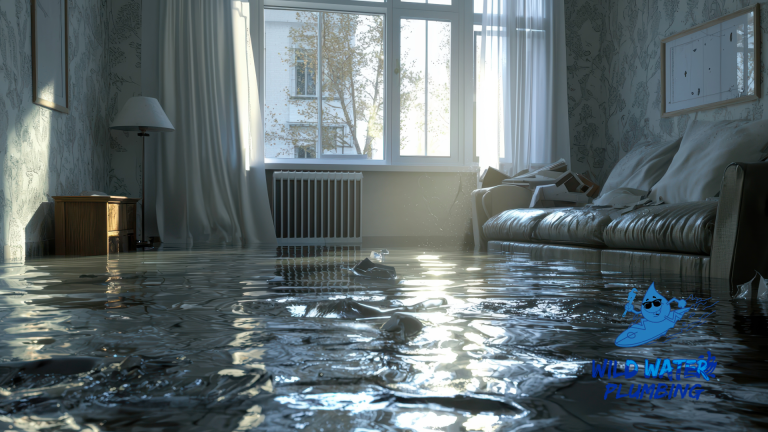
When deciding on a gas or electric water heater in Greater Jacksonville, NC, you need to think about efficiency, installation costs, and safety among other things. This article will answer some of the most frequently asked questions by homeowners such as how to size your unit correctly; what is the average lifespan for various models and tips on maintaining them. Whether this is for troubleshooting purposes or because you’re in need of a new one altogether – our guide has got everything covered so that it can help ensure efficient functioning as well as reliability from any residential hot water system within your house.
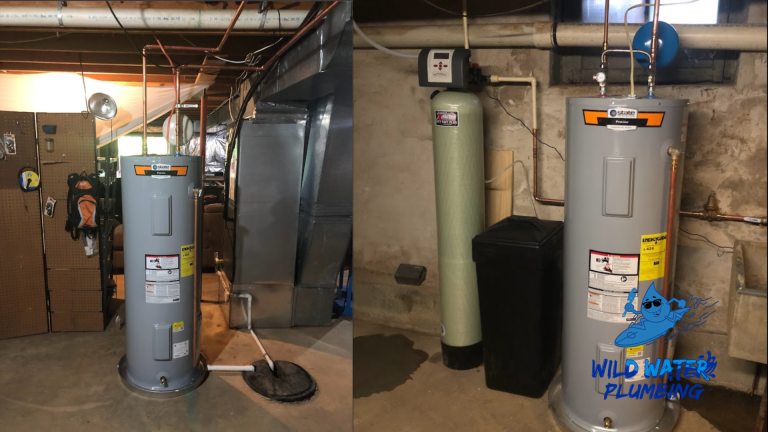
Let's improve your plumbing & water system today!
Veteran Owned Plumbing Repair, Inspection, & Installation Services.
Additional Services
Plumbing Tips
- From Leaks to Code Violations: Remodel Gone Wrong!
- Clogged Drains: Signs & Fixes with a Pipe Inspection
- Warning Signs of a Failing Well Water System
- Warning Signs of a Failing Water Heater (Gas or Electric)
- Warning Signs of Major Sewer System Issues in Coastal NC
- 50 Hidden Causes for Low Water Pressure
- 50 Plumbing Challenges in Kitchen Renovations
- 50 Reasons Why Your Well Pump System is Failing
- DIY Challenges of Replacing Gas or Electric Water Heater
